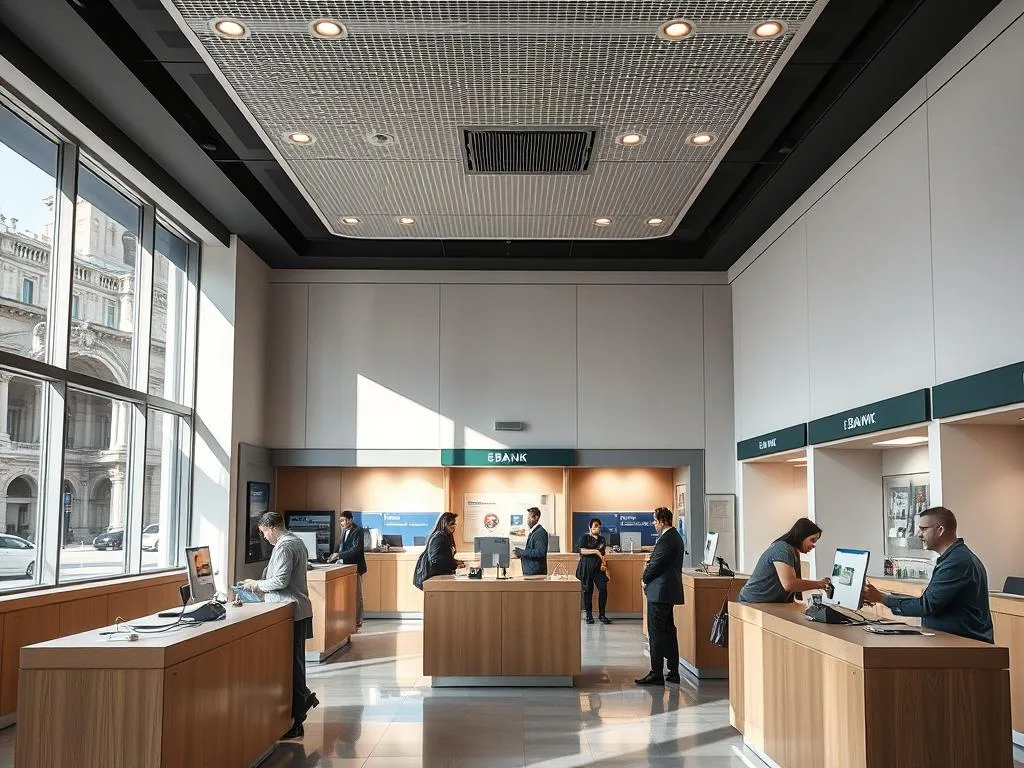Italy offers a unique blend of rich cultural heritage and modern business opportunities for foreign entrepreneurs. With access to the European Union market, strong tourism, fashion, and food sectors, and a growing tech scene, Italy presents an attractive destination for starting a business. However, navigating the Italian bureaucracy, understanding local regulations, and overcoming language barriers can be challenging for foreigners. This comprehensive guide will walk you through the essential steps to successfully establish your business in Italy.
Legal Requirements for Foreign Entrepreneurs
Before launching your business in Italy, you need to understand the legal framework that applies to foreign entrepreneurs. The requirements differ depending on whether you’re an EU/EFTA citizen or from outside these areas.
Visa and Residency Options
Non-EU/EFTA citizens must obtain an appropriate visa to start a business in Italy. The most common options include:
- Self-employment visa – For those planning to work as freelancers or start their own business
- Investor visa – Requires a minimum investment of €250,000 in an innovative Italian startup
- Startup visa – Specifically designed for innovative business ideas with at least €50,000 in investment capital
- Elective residency visa – For those who can demonstrate sufficient passive income
EU/EFTA citizens don’t need a specific business visa but must register with their local municipality (comune) if staying longer than three months.
Need Help With Your Italian Visa Application?
Our team of immigration experts can guide you through the complex visa application process, ensuring you select the right visa type for your business goals and prepare all necessary documentation correctly.
Required Documentation
Regardless of your nationality, you’ll need several essential documents to establish your business:
- Tax identification number (Codice Fiscale) – Required for all financial transactions
- Business plan – Detailing your business concept, market analysis, and financial projections
- Proof of sufficient funds – Demonstrating your ability to support yourself and your business
- Proof of accommodation – Showing where you’ll be staying in Italy
- Health insurance – Comprehensive coverage valid in Italy
Types of Business Structures in Italy
Choosing the right legal structure for your business is crucial as it affects taxation, liability, and operational requirements. Italy offers several business structures, each with distinct advantages and disadvantages.
Sole Proprietorship (Ditta Individuale)
This is the simplest business structure where an individual trades as a business. The company doesn’t exist as a separate legal entity.
Advantages
- Simple and inexpensive to establish
- Complete control over business decisions
- Minimal bureaucracy and paperwork
- No minimum capital requirement
Disadvantages
- Unlimited personal liability for business debts
- Limited access to financing
- Business ends with the owner’s retirement or death
- All business income taxed as personal income
Limited Liability Company (SRL)
The most common type of corporation in Italy, SRL (Società a Responsabilità Limitata) is a private company with one or more owners.
Advantages
- Limited liability protection for shareholders
- Flexible management structure
- Easier access to capital and financing
- Minimum capital requirement of just €1
Disadvantages
- More complex setup and administration
- Higher setup and maintenance costs
- Subject to corporate taxation
- Requires articles of association

Other Business Structures
| Business Structure | Description | Minimum Capital | Liability | Best For |
| Simplified LLC (SRLS) | A simplified version of SRL with reduced formalities | €1 (max €9,999) | Limited | Young entrepreneurs, small startups |
| Partnership (SNC) | General partnership with shared management | No minimum | Unlimited | Professional services, family businesses |
| Limited Partnership (SAS) | Partnership with general and limited partners | No minimum | Mixed | Businesses with active and passive investors |
| Joint Stock Company (SpA) | Public limited company with shares | €50,000 | Limited | Large enterprises, public trading |
| Branch Office | Extension of foreign company | No minimum | Parent company liable | Foreign companies entering Italian market |
Step-by-Step Registration Process
Registering your business in Italy involves several steps and interactions with different government agencies. While the process can be bureaucratic, following these steps systematically will help ensure a smooth registration.
-
Obtain a Tax Identification Number (Codice Fiscale)
Visit the local tax office (Agenzia delle Entrate) with your passport to obtain this essential identification number. This is required for all financial transactions in Italy.
-
Prepare Business Documentation
Draft your business plan, articles of association (for corporations), and memorandum (Atto Costitutivo). For incorporated businesses, these documents must be certified by a notary.
-
Open a Business Bank Account
Visit an Italian bank with your Codice Fiscale and passport to open a business account. For corporations, you’ll need to deposit the minimum required capital.

-
Register with the Business Register
All companies must register with the National Business Register (Registro Imprese) managed by the Chamber of Commerce. This can be done through the ComUnica online system.
-
Register for VAT (Partita IVA)
Apply for a VAT number at the tax office. This is required for all businesses that expect to have a turnover above the minimum threshold.
-
Register with Social Security (INPS)
Register with the National Institute of Social Security to make social security payments and access benefits, including state pensions.
-
Register with INAIL
Register with the National Institute for Occupational Accident Insurance for insurance coverage of work-related accidents and illnesses.
-
Obtain Necessary Licenses and Permits
Depending on your business type, you may need specific licenses or permits from local authorities or regulatory bodies.
Timeline and Costs: The entire registration process typically takes 5-7 days for simple businesses and up to 3 weeks for more complex structures. Costs include registration fees (approximately €520), notary fees (€1,500-2,500 for corporations), trademark registration (up to €234), and minimum share capital requirements.
Streamline Your Business Registration
Our business formation specialists can handle the entire registration process for you, saving you time and ensuring all documentation is correctly prepared and submitted.
Taxation and Compliance for Foreign Entrepreneurs
Understanding the Italian tax system is crucial for business compliance and financial planning. Italy has various taxes that apply to businesses, with rates and requirements depending on your business structure and activities.
Key Business Taxes in Italy
| Tax Type | Rate | Applies To | Filing Frequency |
| Corporate Income Tax (IRES) | 24% | Corporate profits of limited companies | Annually |
| Regional Production Tax (IRAP) | 3.9% (varies by region) | Business production value | Annually |
| Value Added Tax (VAT) | 22% (standard rate) | Sale of goods and services | Quarterly or monthly |
| Personal Income Tax (IRPEF) | 23-43% (progressive) | Sole proprietors and partnerships | Annually |
| Social Security Contributions | ~24-34% | Employee and self-employed income | Monthly |

Double Taxation Treaties
Italy has signed double taxation treaties with many countries to prevent income from being taxed twice. These agreements can significantly benefit foreign entrepreneurs by reducing their overall tax burden. Check if your home country has such an agreement with Italy and understand how it applies to your specific situation.
Tax Incentives for Startups
Italy offers various tax incentives to encourage entrepreneurship and innovation:
- Innovative Startup Benefits – Reduced corporate formation requirements, tax credits for R&D, and flexible employment rules
- Patent Box Regime – Reduced taxation on income derived from intellectual property
- Investment Incentives – Tax deductions for equity investments in Italian companies
- Regional Incentives – Additional benefits for businesses in economically disadvantaged areas
“Understanding Italian taxation is not just about compliance—it’s about strategic planning. The right structure and knowledge of available incentives can significantly reduce your tax burden and improve profitability.”
Understanding Italian Employment Laws
If you plan to hire employees for your business in Italy, you need to understand the country’s comprehensive labor laws. Italian employment regulations strongly favor workers’ rights and provide significant protections.
Key Employment Considerations
- Employment Contracts – Written contracts are mandatory and must specify job duties, working hours, salary, and notice periods
- Working Hours – Standard workweek is 40 hours with a maximum of 48 hours including overtime
- Minimum Wage – Set by collective bargaining agreements for different sectors
- Paid Leave – Minimum 4 weeks of paid vacation annually, plus 11 public holidays
- Termination Rules – Strict regulations regarding dismissal with specific notice periods and severance pay

Hiring Foreign Workers
When hiring non-EU citizens, you must navigate additional requirements:
- Obtain work permits through the annual quota system (Decreto Flussi)
- Demonstrate why the position cannot be filled by an EU citizen
- Provide housing and return transportation guarantees
- Register the employment contract with local authorities
Social Security Obligations
Employers in Italy must make social security contributions for all employees, covering:
Employer Contributions
- Pension fund (approximately 23-24% of gross salary)
- Health insurance
- Unemployment insurance
- Work injury insurance
Employee Contributions
- Pension fund (approximately 9-10% of gross salary)
- Health insurance
- Unemployment insurance
Finding the Right Business Location
Selecting an appropriate location for your business in Italy is a critical decision that can significantly impact your success. Different regions offer varying advantages in terms of infrastructure, market access, and business environment.
Popular Business Regions
Milan & Lombardy
Italy’s financial and business hub with excellent infrastructure and international connections. Ideal for finance, fashion, design, and technology businesses.

Rome & Lazio
The capital region offers access to government institutions and a large consumer market. Strong in tourism, services, and creative industries.

Bologna & Emilia-Romagna
Known for manufacturing excellence, food production, and innovation. Strong university presence and research facilities.

Commercial Real Estate Considerations
When selecting a business location, consider these factors:
- Rent Costs – Vary significantly by region (Milan and Rome being the most expensive)
- Lease Terms – Typically 6+6 years for commercial properties (6 years with automatic 6-year renewal)
- Registration Requirements – Commercial leases must be registered with the tax authority
- Zoning Regulations – Ensure the location is zoned for your specific business activity
- Accessibility – Consider transportation links for employees and customers
Virtual Office Option: If you don’t need a physical location initially, consider a virtual office service. This provides a business address and mail handling while you work remotely. Costs start at approximately €100 per month.
Setting Up Business Banking in Italy
Establishing proper banking arrangements is essential for your Italian business operations. All corporations are legally required to have a separate business bank account, and it’s advisable even for sole proprietors to maintain clear separation between personal and business finances.
Opening a Business Bank Account
To open a business bank account in Italy, you’ll need:
- Tax identification number (Codice Fiscale)
- Business registration documents
- Articles of association (for corporations)
- Valid identification (passport)
- Proof of address in Italy
- Initial deposit (varies by bank)

Comparing Italian Banks
| Bank | English Services | Online Banking | International Transfers | Monthly Fees |
| Intesa Sanpaolo | Yes | Comprehensive | Low fees | €10-20 |
| UniCredit | Yes | Comprehensive | Moderate fees | €15-25 |
| BNL BNP Paribas | Limited | Good | Moderate fees | €8-18 |
| Fineco | Yes | Excellent | Low fees | €3-12 |
Payment Processing
If your business will accept card payments, you’ll need to set up merchant services. Italian banks offer POS terminals with fees typically including:
- Setup fee: €50-150
- Monthly rental: €10-30
- Transaction fees: 1-3% depending on card type and volume
Important: Italian anti-money laundering regulations are strict. Ensure all business transactions are properly documented and reported. Cash transactions exceeding €1,000 are subject to special reporting requirements.
Cultural Tips for Business Success in Italy
Understanding Italian business culture is essential for foreign entrepreneurs. Building strong relationships and navigating local customs can significantly impact your business success.
Building Business Relationships
Italians prefer to do business with people they know and trust. Investing time in relationship-building is crucial:
- Face-to-face meetings are highly valued over email or phone calls
- Business lunches and dinners are important for building relationships
- Small talk before business discussions is expected and appreciated
- Personal connections and introductions can open many doors

Communication Style
Italian communication has distinct characteristics:
Verbal Communication
- Expressive and animated speaking style
- Interruptions are common and not considered rude
- Tone and volume convey emphasis and emotion
- Directness is appreciated in most regions
Non-verbal Communication
- Hand gestures are an integral part of communication
- Physical proximity is closer than in many cultures
- Eye contact is important and shows engagement
- Formal dress is expected in business settings
Regional Differences
Italy has significant regional variations in business culture:
“In Italy, business is personal. Take time to build relationships, show genuine interest in your Italian partners, and demonstrate respect for local customs. This investment in cultural understanding will pay dividends in your business success.”
Need Cultural and Language Support?
Our team of bilingual business consultants can help you navigate Italian business culture, provide translation services, and facilitate important business relationships.
Building Your Business Network in Italy
Developing a strong professional network is particularly important in Italy, where business often relies on personal connections. As a foreign entrepreneur, strategic networking can help you overcome cultural barriers and access valuable resources.
Key Networking Organizations
Chambers of Commerce
Join your local Chamber of Commerce (Camera di Commercio) and international chambers like the American Chamber of Commerce in Italy or British Chamber of Commerce for Italy.

Industry Associations
Sector-specific associations provide specialized networking, resources, and advocacy. Examples include Confindustria (general industry), Confcommercio (commerce), and ANIE (electronics).

Expat Business Groups
Organizations like InterNations Business Group and Professional Women’s Association provide support specifically for foreign entrepreneurs and professionals in Italy.

Effective Networking Strategies
To maximize your networking efforts in Italy:
- Prepare bilingual business cards with your Italian contact information
- Develop a concise “elevator pitch” about your business in Italian
- Attend industry trade shows and exhibitions relevant to your sector
- Join local business associations in your specific community
- Consider working with a local partner who can facilitate introductions
- Follow up personally after meetings with a call or handwritten note
Digital Networking: While in-person relationships are paramount in Italy, professional platforms like LinkedIn are increasingly important. Ensure your profile highlights your Italian business presence and connections.
Funding Options for Foreign Entrepreneurs
Securing adequate funding is a critical step in establishing your business in Italy. As a foreign entrepreneur, you have access to various financing options, from traditional bank loans to government incentives and private investments.
Government Incentives and EU Funding
Italy offers several funding programs specifically designed to attract foreign investment and support new businesses:
- Invitalia Incentives – The National Agency for Investment Attraction offers grants and subsidized loans for new businesses
- Smart&Start Italia – Provides zero-interest loans covering up to 80% of expenses for innovative startups
- European Regional Development Fund (ERDF) – EU funding for businesses in economically disadvantaged regions
- Horizon Europe – EU research and innovation funding program

Private Funding Sources
Beyond government support, consider these private funding options:
Traditional Financing
- Bank loans (typically requiring collateral)
- Business lines of credit
- Equipment financing
- Invoice factoring
Alternative Financing
- Angel investors and venture capital
- Crowdfunding platforms
- Peer-to-peer lending
- International investor networks
Important: When applying for Italian funding programs, ensure all documentation is properly prepared in Italian and meets specific program requirements. Many government incentives have strict eligibility criteria and application deadlines.
Download Our Italian Business Funding Guide
Get our comprehensive guide to funding options for foreign entrepreneurs in Italy, including application templates, eligibility requirements, and expert tips for securing financing.
Overcoming Common Challenges
Foreign entrepreneurs in Italy face several common challenges. Understanding these obstacles and planning strategies to overcome them can significantly improve your chances of success.
Language Barriers
While English is increasingly common in business circles, particularly in larger cities and international companies, Italian remains essential for daily operations and dealing with authorities.
- Solution: Invest in Italian language classes or hire bilingual staff
- Solution: Work with professional translators for important documents and meetings
- Solution: Use translation services for your business materials and website

Navigating Bureaucracy
Italy’s complex bureaucratic procedures can be time-consuming and frustrating, especially for those unfamiliar with the system.
- Solution: Work with experienced local accountants and legal advisors
- Solution: Prepare for longer timeframes than you might expect
- Solution: Maintain organized documentation of all interactions with authorities
Cultural Adaptation
Understanding and adapting to Italian business culture is essential for building successful relationships.
- Solution: Research Italian business etiquette before important meetings
- Solution: Observe local customs and adapt your approach accordingly
- Solution: Build relationships through social interactions outside of formal business settings
“The challenges of doing business in Italy are real, but so are the rewards. Those who take the time to understand the culture, learn the language, and build genuine relationships find that Italy offers unique opportunities for business growth and personal satisfaction.”
Success Stories: Foreign Entrepreneurs in Italy
Many foreign entrepreneurs have successfully established thriving businesses in Italy. Their experiences offer valuable insights and inspiration for those looking to follow a similar path.
Sarah Johnson: From London to Florence

British entrepreneur Sarah Johnson moved to Florence in 2018 and established “Tuscan Artisan Tours,” a boutique travel company connecting tourists with local craftspeople. Despite initial challenges with bureaucracy and language barriers, her business now employs five people and partners with over 30 local artisans.
Key to Success: “I invested heavily in learning Italian and building relationships with local artisans before launching. Understanding the cultural nuances of both my Italian partners and my primarily English-speaking customers has been essential.”
Michael Chen: Tech Innovation in Milan

American tech entrepreneur Michael Chen founded “GreenLogistics,” a software company optimizing delivery routes for sustainability, in Milan in 2020. Leveraging Italy’s startup visa program and innovation incentives, he secured €500,000 in funding and now serves clients throughout Southern Europe.
Key to Success: “We took advantage of Italy’s incentives for innovative startups and worked closely with local business advisors from day one. Finding the right Italian partners who complemented our technical expertise with market knowledge was crucial.”
Lessons from Successful Foreign Entrepreneurs
- Invest in cultural understanding and language skills
- Build a strong local network of partners and advisors
- Research available incentives and funding opportunities
- Be patient and persistent when navigating bureaucracy
- Adapt your business model to local market preferences
- Leverage your unique perspective as a foreigner to identify opportunities
Conclusion: Your Path to Business Success in Italy
Starting a business in Italy as a foreigner presents both challenges and opportunities. The country’s rich cultural heritage, strategic location within the European Union, and diverse economic landscape make it an attractive destination for entrepreneurs from around the world.
While navigating Italian bureaucracy, understanding local business customs, and overcoming language barriers may seem daunting, proper preparation and the right support can smooth your path to success. By carefully selecting your business structure, following the registration process diligently, understanding your tax obligations, and building strong local relationships, you can establish a thriving business in this beautiful Mediterranean country.
Remember that local expertise is invaluable. Consider consulting with Italian legal and accounting professionals who specialize in helping foreign entrepreneurs. Their guidance can help you avoid common pitfalls and take advantage of available incentives and opportunities.
With determination, cultural sensitivity, and strategic planning, your Italian business venture can become a rewarding reality. Buona fortuna!
Ready to Start Your Italian Business Journey?
Our team of experts specializes in helping foreign entrepreneurs establish successful businesses in Italy. From company formation to ongoing compliance, we provide comprehensive support tailored to your specific needs.









